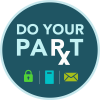Jane is your Regional Substance Use Prevention Consultant. She works with community groups, schools, human service agencies, hospitals, law enforcement, parents and youth. The purpose of this work is to educate communities about the risks of alcohol and other drug use and to reduce misuse among youth, young adults and adults through:
-
Community organizing
-
Program planning and consultation
-
Presentations and training
-
Community grants information and guidance
-
Information and referral
PREVENTION WORKS!
Community Organization Focuses on Preventing Alcohol and other Drug Use
Several area organizations provide coordination of prevention partnerships in our community. These partnerships aim to reduce underage drinking, binge drinking, prescription drug misuse and cannabis use by promoting municipal policy changes, providing opportunities for education and providing referrals to local resources.
Below are the community partners in our area. Contact them to find out what they do and how you can get involved!


